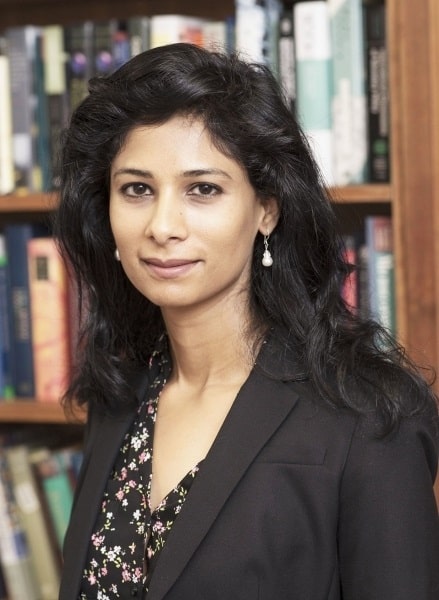
Washington (IANS): Eminent academic and former economic adviser to the Kerala government, Gita Gopinath, has taken over as the International Monetary Fund’s (IMF) chief economist.
When IMF’s Managing Director Christine Lagarde announced Gopinath’s appointment in October with the formal title of Economic Counsellor and Director of the Research Department, she called her “one of the world’s outstanding economists, with impeccable academic credentials, a proven track record of intellectual leadership, and extensive international experience.”
“All this makes her exceptionally well-placed to lead our Research Department at this important juncture. I am delighted to name such a talented figure as our Chief Economist,” Lagarde said.
Before coming to the IMF, where she succeeded Maurice Obstfeld, Gopinath was the professor of International Studies and Economics at Harvard University.
She was concurrently appointed in 2016 as the economic adviser to Kerala Chief Minister with the rank of principal secretary.
She has also served as a member of the Eminent Persons Advisory Group on G-20 Matters for the Indian Ministry of Finance.
In addition to helping formulate policies for the IMF and set strategies and evaluate performance of nations, she will oversee the World Economic Outlook Report that is considered a major survey of the global economy.
A significant aspect of her position will be helping set the conditions for countries seeking bailouts from the IMF. Often the terms call for stringent financial regulations and unpopular belt-tightening for the recipients.
A graduate of Lady Sri Ram College in New Delhi, Gopinath received her MA degree from the Delhi School of Economics.
She went on to Princeton University from where she got her PhD in economics in 2001 for her work on international macroeconomics and trade.
Gopinath was an assistant professor at University of Chicago before moving to Harvard in 2005. She received the Bhagwati Prize for the best paper published in the Journal of International Economics in 2003 and 2004.
In 2014, she was named one of the top 25 economists under 45 by the IMF and was a World Economic Forum Young Global Leader in 2011.
Her extensive research and writings include a critique of Prime Minister Narendra Modi’s demonetisation in 2016.
Writing in the Project Syndicate within days of the demonetisation, she presciently said the government “seems to be causing collateral damage to India’s economy.”










